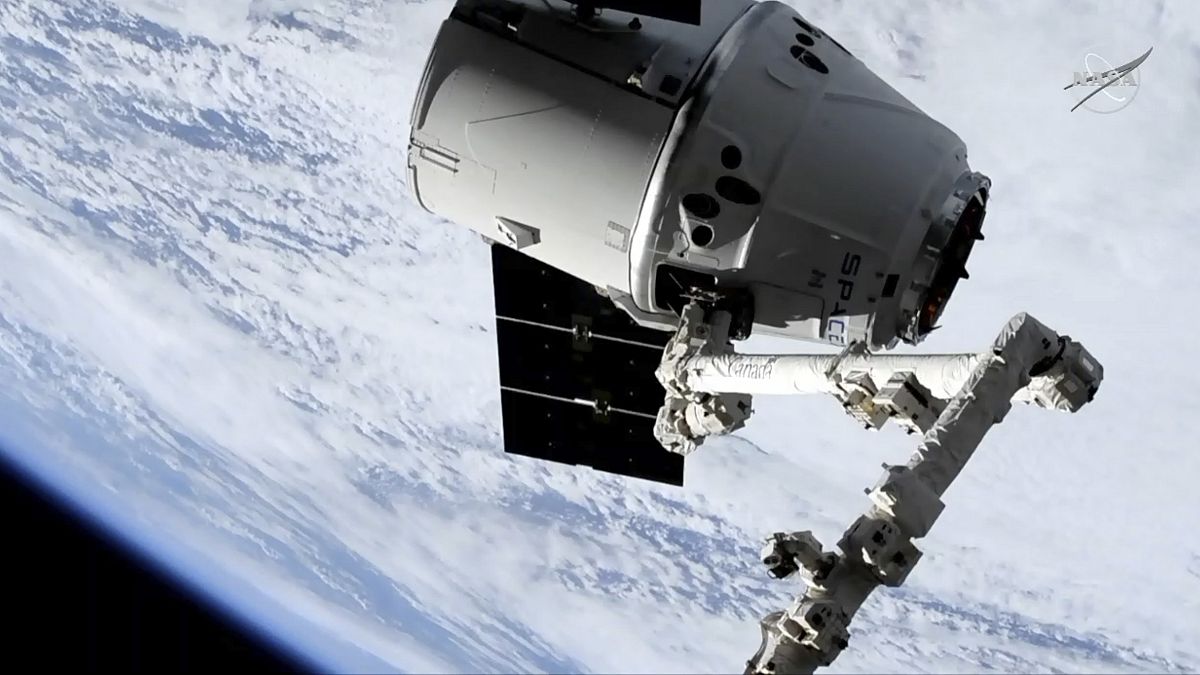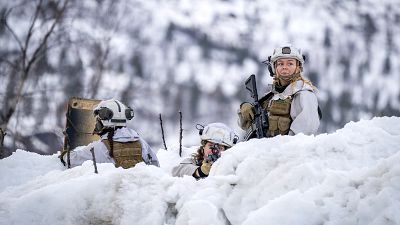There's a tremendous amount of things we lose if we lose access to space, said Lieutenant General David Julazadeh.
Russia’s war on Ukraine marked the start of the commercial space war, with private US companies providing satellite images of enemy advances and Internet connection for civilians.
The North Atlantic Treaty Organisation (NATO) caught onto this new frontier of defence in 2019 and aims to boost its capabilities but cannot do so without relying on governments and companies such as SpaceX.
At NATO’s first-ever symposium in Toulouse, France last week, high-ranking alliance officials, start-ups and large companies such as Airbus rubbed shoulders to map out the priorities for space defence.
While the exact plans remain confidential and are set to be detailed at a July summit in Washington, the organisation has highlighted several threats and priorities.
“The types of threats are easy to find. They're the direct descent, anti-satellite missiles, laser capabilities, jamming capabilities, dual-use capabilities,” said Lieutenant General Thomas James, deputy commander for the United States Space Command, to a group of journalists at a press conference.
“We'll just see what the threats really are as we move, into the future. But I think that's coming faster than a lot of people anticipate”.
But one area is a top priority for NATO: space domain awareness, meaning the monitoring of military and non-military activities in space.
James said it is even more important as satellites become more numerous and dynamic in the way they operate.
Russian threat
Some countries, including Russia and China, have also tested counter-space technologies.
Russia has already tested an anti-satellite missile, which could inspect satellites and attack them. In 2021, NATO allies condemned this anti-satellite missile test and the same year stated that Article 5 (an attack on one NATO member is considered an attack on all) could be invoked if attacks to, from, or within space present a clear challenge to security.
“I think space matters to us a lot… I think it's the domain in which we are likely to be tested earliest and possibly really quite dramatically right up to the point of Article 5,” Angus Lapsley, Assistant Secretary General of NATO’s Policy and Planning Division (DPP) told a press roundtable.
“Not least because I think there is still a perception that countries will take pain in space, that they wouldn't take on the ground,” he added.
There are currently 7,560 active satellites in orbit, according to the Union of Concerned Scientists (UCS) Satellite Database. The United States has the most (more than 5,000) and the vast majority of them are commercial. China comes in second place with 628, followed by Russia with 181.
Between the 1970s and up until 2010, NATO had several of its own space satellites. But NATO member states did not want the organisation to own them, so NATO instead has access to national communications satellites from France, Italy and the UK.
But seeing as Europe has a small amount of space satellites and the domain is expensive, working with the commercial sector is vital.
However, questions arise such as how to protect critical infrastructure that is provided by the private sector, whether there is company bias, and whether it is wise for NATO to put space defence in the hands of companies and business minds such as Elon Musk’s SpaceX.
Lapsley said “it is possible” that NATO could go in the direction of owning some “bits” of its own space capabilities in the future like it did in the past. NATO has not indicated it has any such plans in the future.
However, there will likely be a mix of ownership categories that NATO uses, which include capabilities owned by several allies together, state-owned national assets, and privately owned assets.
“Sometimes it's not a good bet for a government to own something, especially in an area where technology is moving very quickly rather than spend lots of capital on something that's going to be outdated in five years time anyway,” he said.
“You're better off buying a service from it and then looking for those opportunities when you should go into a capital buy”.
European technology ‘definitely an asset’
With the upcoming launch of Arianespace’s first four second-generation satellites for Galileo, Europe’s global navigation satellite system, the bloc is becoming increasingly important in the space industry.
“Europe is very important because, of course, there are contributions that can be provided by single allies,” Giorgio Cioni, NATO’s director of armament and aerospace capabilities, told Euronews Next.
“But I think what the European Union is doing in terms of contributing to the space domain with its own programmes is very important,” he said adding that Europe’s space technology is “definitely an asset” the organisation will try to explore.
Space satellites are not the only important aspect of defence, reading the data that comes from the satellites is also a priority for NATO.
Another important aspect for the organisation and its 32 allies is for them to work together.
“The other key element is raising the space IQ, the intelligence of all the nations because granted, there are some nations that don't have any space capabilities at all,” said Lieutenant General David Julazadeh from NATO’s Allied Command Transformation.
Failing to get space defence right could be catastrophic for NATO.
“If we lose that capability, we lose our ability to track our forces on the ground, to track adversary forces on the ground, to do satellite communication with our forces around the world instantaneously,” said Julazadeh.
“There's a tremendous amount of things we lose if we lose access to space”.



